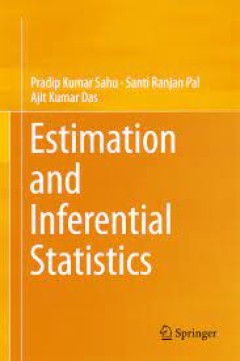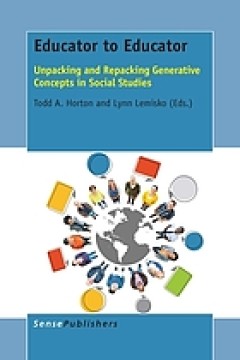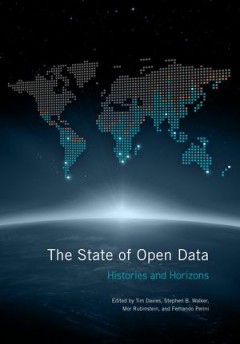Filter by

Excel 2013 for Human Resource Management Statistics
This book shows how Microsoft Excel is able to teach human resource management statistics effectively. Similar to the previously published Excel 2010 for Human Resource Management Statistics, it is a step-by-step exercise-driven guide for students and practitioners who need to master Excel to solve practical human resource management problems. If understanding statistics isn’t your strongest …
- Edition
- -
- ISBN/ISSN
- 978-3-319-28982-3
- Collation
- Springer International
- Series Title
- -
- Call Number
- -

Excel 2013 for Educational and Psychological Statistics A Guide to Solving P…
This is the first book to show the capabilities of Microsoft Excel to teach educational and psychological statistics effectively. It is a step-by-step exercise-driven guide for students and practitioners who need to master Excel to solve practical problems in education and psychology. If understanding statistics isn’t your strongest suit, you are not especially mathematically-inclined, or i…
- Edition
- -
- ISBN/ISSN
- 978-3-319-26712-8
- Collation
- 162 b/w illustrations, 4 illustrations in colour
- Series Title
- -
- Call Number
- -

Optimization Methods for Gas and Power Markets
As power and gas markets are becoming more and more mature and globally competitive, the importance of reaching maximum potential economic efficiency is fundamental in all the sectors of the value chain, from investments selection to asset optimization, trading and sales. Optimization techniques can be used in many different fields of the energy industry, in order to reduce production and finan…
- Edition
- 1
- ISBN/ISSN
- 978-1-137-41296-6
- Collation
- XVII, 192
- Series Title
- Applied Quantitative Finance
- Call Number
- -

Almost Hollywood, Nearly New Orleans : The Lure of the Local Film Economy
Early in the twenty-first century, Louisiana, one of the poorest states in the United States, redirected millions in tax dollars from the public coffers in an effort to become the top location site globally for the production of Hollywood films and television series. Why would lawmakers support such a policy? Why would citizens accept the policy’s uncomfortable effects on their economy and cu…
- Edition
- -
- ISBN/ISSN
- 9780520967175
- Collation
- -
- Series Title
- -
- Call Number
- 791.43 MAY a

Estimation and Inferential Statistics
This book focuses on the meaning of statistical inference and estimation. Statistical inference is concerned with the problems of estimation of population parameters and testing hypotheses. Primarily aimed at undergraduate and postgraduate students of statistics, the book is also useful to professionals and researchers in statistical, medical, social and other disciplines. It discusses current …
- Edition
- -
- ISBN/ISSN
- 978-81-322-2514-0
- Collation
- 23 b/w illustrations
- Series Title
- -
- Call Number
- -

Educator to educator : unpacking and repacking generative concepts in social …
Thinking and learning are based on powerful concepts -- ideas that identify, but also provoke and challenge. This collection is designed to ignite discussions among educators and learners at all levels about social studies concepts that generate curiosity, passion, and a sense of who we are and could be in this world. Contributors to this book, drawn from across the educational field, have focu…
- Edition
- -
- ISBN/ISSN
- 9789462099869
- Collation
- xiv, 227 pages
- Series Title
- -
- Call Number
- 300.71

The State of Open Data: Histories and Horizons
It’s been ten years since open data first broke onto the global stage. Over the past decade, thousands of programmes and projects around the world have worked to open data and use it to address a myriad of social and economic challenges. Meanwhile, issues related to data rights and privacy have moved to the centre of public and political discourse. As the open data movement enters a new phase…
- Edition
- -
- ISBN/ISSN
- 9781552506127
- Collation
- -
- Series Title
- -
- Call Number
- 005.642 STA

A New Research Agenda for Improvements in Quality of Life
This book presents a new research agenda for improvements in Quality of Life research. It includes topics such as: -Studying QoL in particular subpopulations and selected subgroups -Disentangling the difficult task of identifying determinants of QoL -Perfectionating the measurement of conceptual dimensions -Defining new indicators able to measure and monitor particular social condit…
- Edition
- Ed. 1
- ISBN/ISSN
- 978-3-319-15904-1
- Collation
- -
- Series Title
- Social Indicators Research Series
- Call Number
- 342.041 NEW n

Enhancing Fieldwork Learning Using Mobile Technologies
This book shows how tablets (and smartphones) using a variety of selected ‘apps’, can enhance fieldwork and other out-of-classroom activities. The authors review imaginative uses of tablets from their own project and as well as examples from other colleagues. To help readers keep abreast of new technology and innovative ways to use it, the book is supported by a web site and a social media …
- Edition
- -
- ISBN/ISSN
- 978-3-319-20967-8
- Collation
- 3 b/w illustrations, 24 illustrations in colour
- Series Title
- -
- Call Number
- -

Time Perspective Theory; Review, Research and Application
This book is about time and its powerful influence on our personal and collective daily life. It presents the most comprehensive and up-to-date overview of contemporary knowledge on temporal psychology inspired by Zimbardo's work on Time Perspective (TP). With contributions from renowned and promising researchers from all over the globe, and at the interface of social, personality, cognitive an…
- Edition
- -
- ISBN/ISSN
- 978-3-319-07368-2
- Collation
- 26 b/w illustrations, 10 illustrations in colour
- Series Title
- -
- Call Number
- -
 Computer Science, Information & General Works
Computer Science, Information & General Works  Philosophy & Psychology
Philosophy & Psychology  Religion
Religion  Social Sciences
Social Sciences  Language
Language  Pure Science
Pure Science  Applied Sciences
Applied Sciences  Art & Recreation
Art & Recreation  Literature
Literature  History & Geography
History & Geography